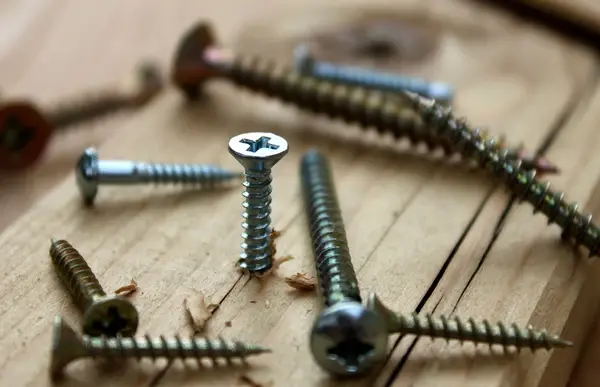Building a deck is a considerable investment in your home’s comfort and value. It’s an outdoor retreat where memories are made and summer evenings are enjoyed. However, to ensure that a deck is safe, durable, and aesthetically pleasing, careful attention must be paid to the materials used in its construction, particularly to the fasteners—specifically, the screws. Selecting the right screws is a vital step in the deck building process that ensures the long-term stability and integrity of the structure.
The Role of Screws in Deck Construction
Screws are the backbone of the decking structure. They hold the boards in place, secure railings, and contribute to the overall strength of the deck. But not any screw can be used; specific types have been designed to withstand the outdoor conditions decks must endure. From temperature fluctuations to severe weather, the right screw must continuously maintain its grip without succumbing to corrosion or causing wood to split.
Understanding Deck Screw Composition
When searching for deck screws at The Landscape Store, you’ll find that these specialized screws are often made of coated steel or stainless steel. Coatings, such as polyester, epoxy, and ceramic, are added to provide extra corrosion resistance. Stainless steel screws, on the other hand, offer a higher level of corrosion resistance and are particularly suitable for coastal areas where salt air can lead to rapid deterioration of metal.
Factors to Consider When Choosing Deck Screws
Several factors influence the selection of the right screws for deck construction, including:
1. Length and Diameter
The length of the screw should be chosen based on the thickness of the decking boards. As a general rule, screws should penetrate the joist by at least 1.5 inches. In terms of diameter, screws need to be thick enough to provide strength but not so thick that they split the wood.
2. Thread Type and Design
Screw threads dictate the ease of driving and the holding power within the wood. Coarse threads are typically better for softwood, while finer threads are suited for hardwoods and composites. Some screws also feature a cut point at the tip that helps reduce the need for pre-drilling and decreases the chance of splitting the board.
3. Head Type
The head of the screw affects how flush it can sit with the surface of the wood. The most common are bugle heads, which are designed to sit flush without breaking the surface fibres of the wood. Some heads are also coloured to match the decking material, making them less visible.
4. Resistance to Elements
Given their exposure to the elements, look for screws designed with added protection against rust and corrosion. This includes those made from stainless steel or coated with long-lasting, weather-resistant materials.
5. Compatibility with Materials
Some decking materials require specific types of screws. Composite decking materials, for instance, often require screws specifically designed not to “mushroom” or bulge at the surface when driven in.
Benefits of Using the Right Screws
Choosing the right screws for deck construction is not just about the immediate aesthetics—it’s about the longevity and safety of the deck. Appropriate screws will prevent boards from popping up or shifting, which could lead to trips and falls. They also ensure the deck stands up to the weight of furniture, grills, and the foot traffic of family gatherings.
Maintaining Integrity Over Time
Decks expand and contract with changes in moisture and temperature. Screws that are not designed for such movement can break or become loose, compromising the safety of the deck. Quality screws are engineered to accommodate these changes and maintain a secure hold over time.
Long-Term Financial Savings
Investing in high-quality screws may have a higher upfront cost, but they can save you money in the long run. The costs associated with repairing or replacing parts of the deck due to substandard fasteners can quickly outpace the initial savings of cheaper screws.
Conclusion
In the critical process of deck building, the selection of screws should not be overlooked. High-quality deck screws provide structural soundness, resist the challenging outdoor environment, and ultimately ensure that your deck is a safe and inviting space for years to come. Selecting the right screws takes into consideration length, diameter, thread and head type, resistance to the elements, and compatibility with the chosen decking material.
The expertise of specialists like those at The Landscape Store can be invaluable in guiding you to the best screw options for your specific deck project. So before you lay the first board, ensure you have the correct screws to lay the foundation for a long-lasting, beautiful deck that will add joy and value to your home for seasons to come.
Choosing the right deck screws is just one aspect of the construction process, but it is an essential one. Opt for screws that provide security and durability, such as those available at The Landscape Store, and you’ll be on your way to building a deck that stands the test of time.
Also Read-Roofing Resilience: Essential Tips for Homeowners


